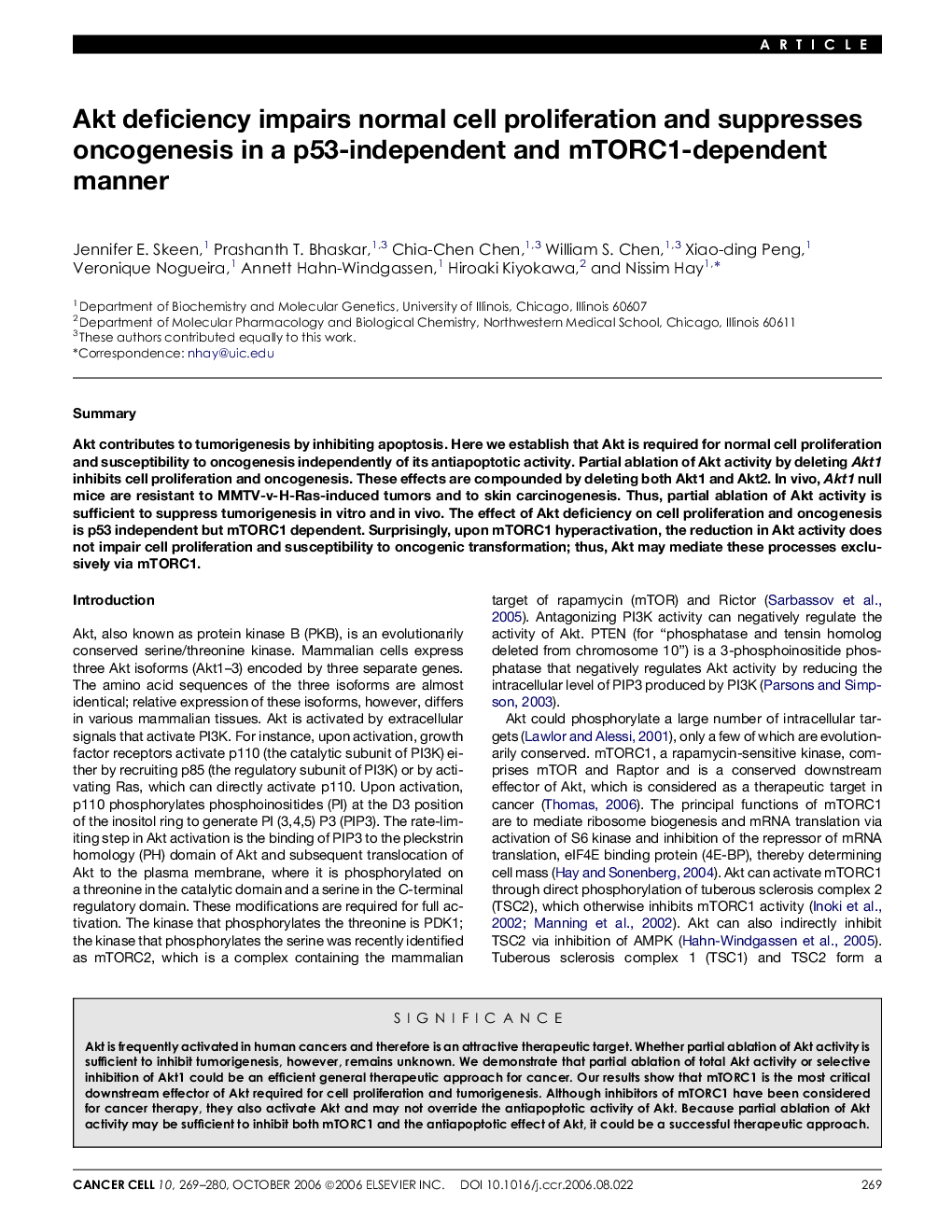| Article ID | Journal | Published Year | Pages | File Type |
|---|---|---|---|---|
| 2108170 | Cancer Cell | 2006 | 12 Pages |
SummaryAkt contributes to tumorigenesis by inhibiting apoptosis. Here we establish that Akt is required for normal cell proliferation and susceptibility to oncogenesis independently of its antiapoptotic activity. Partial ablation of Akt activity by deleting Akt1 inhibits cell proliferation and oncogenesis. These effects are compounded by deleting both Akt1 and Akt2. In vivo, Akt1 null mice are resistant to MMTV-v-H-Ras-induced tumors and to skin carcinogenesis. Thus, partial ablation of Akt activity is sufficient to suppress tumorigenesis in vitro and in vivo. The effect of Akt deficiency on cell proliferation and oncogenesis is p53 independent but mTORC1 dependent. Surprisingly, upon mTORC1 hyperactivation, the reduction in Akt activity does not impair cell proliferation and susceptibility to oncogenic transformation; thus, Akt may mediate these processes exclusively via mTORC1.
